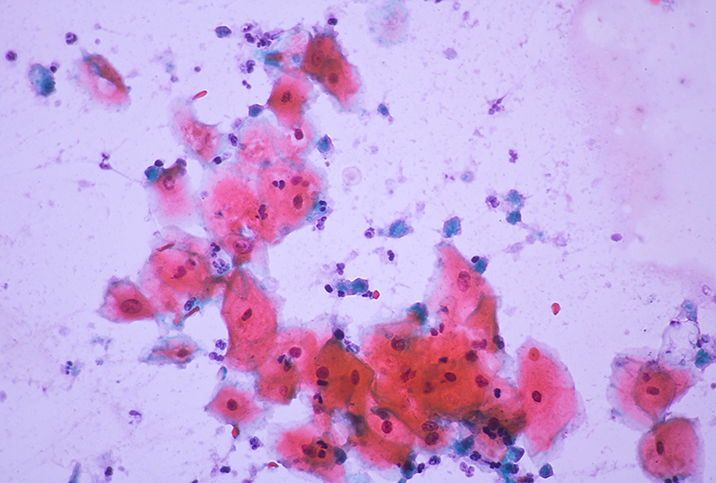Do You Know the Treatment Options for STDs and STIs?

Key Points
- More than 20 types of STIs are recognized, and they affect both men and women, but the health problems they cause are usually more severe for women.
- The cost of treatment can vary depending on the type and severity of the infection and the type of treatment your healthcare provider recommends.
- Untreated STDs and STIs can create scarring in the uterus and fallopian tubes, which can cause difficulty getting pregnant.
Sexually transmitted infections (STIs) are infections that are passed from one individual to another through sexual contact, most often during anal, oral and vaginal sex.
More than 20 types of STIs are recognized. They affect men and women, but the health problems they cause are usually more severe for women. What happens if you don't treat an STI?
Treatment options and side effects and costs
If certain STIs are not treated, they may cause serious health problems. Untreated chlamydia and gonorrhea, for example, can lead to infertility.
Some infections—human papillomavirus (HPV), the most common STI, is one example—are spread by skin-to-skin contact. Infections can be transmitted to a baby during childbirth and through blood transfusions or by sharing needles.
Sexually transmitted diseases and infections caused by bacteria are easier to treat. Infections caused by viruses can be managed but not always cured.
Treatment often consists of antibiotics or antiviral drugs, depending on the type of infection.
Gonorrhea can be treated with an injection of the antibiotic ceftriaxone into the gluteus muscle, according to Sara Moskowitz, N.P., a nurse practitioner at NYU Langone's Preston Robert Tisch Center for Men's Health in New York City.
"The biggest side effect is pain at the injection site," Moskowitz said. "And then chlamydia gets treated with azithromycin. If it's rectal chlamydia, sometimes we'll do doxycycline instead. If you have genital herpes, we would treat that with Valtrex."
Syphilis is also treated with a penicillin injection into the buttock muscle and may cause pain at the injection site, she said.
"A Jarisch-Herxheimer reaction is when the penicillin and the syphilis react," Moskowitz added. "It can cause flushing, low-grade fever and malaise. You're more at risk of having that reaction at the first treatment. It's benign."
Many STIs are easy to screen for and very treatable.
"There shouldn't be any stigma around them," she said. "The STI that has the biggest stigma is herpes. That one we can treat outbreaks, but we can't cure it. But we can even prevent herpes outbreaks with a daily antiviral medication. It's not always easy to determine which partner gave you [herpes] because it's not necessarily the most recent partner."
The cost of treatment can vary depending on the type and severity of the infection and the type of treatment your healthcare provider recommends. Medications and tests typically range from $50 to a few hundred dollars and are usually covered by insurance.
"I've very rarely had any pushback about insurance not covering STI screening or STI treatment," Moskowitz said.
Recommended
- Gonorrhea—A Hands-On Guide to This Common Infection: This sexually transmitted disease (STD) often has no symptoms, so you should understand how you can protect yourself.
- Chlamydia—The Most Successful STD in America: Early treatment can clear it up in about a week, but you need to know you have it first.
- Study Suggests Circumcision Can Protect Men from Getting HPV: Circumcision may reduce STI risk in general for men and their female partners.
STDs/STIs and sexual health
Sexually transmitted diseases and infections impact sexual health through stigmatization, infertility, cancers and pregnancy complications.
"There's definitely still a stigma. STIs and mental health all need to be treated as if you've been diagnosed with hypertension or diabetes. It's the same kind of disease. You need to find the disease and treat it," said Renee Trewella, B.S.N., a registered nurse in Baton Rouge, Louisiana. "Depending on what the disease is is how we treat it."
Regular screenings let people stay up to date on what their baseline is, she added. Even people who are always careful—people who are using vaginal or penile condoms—can catch some STIs because they spread through any kind of contact.
Trewella added it's important to disclose your STI or STD status with anyone you engage in sexual activity with.
"Being diagnosed with an STI is traumatizing in and of itself, especially if the other partner hasn't disclosed their STI status," she said. "'I trusted this person. I opened my body to them.' This is a pretty intense vulnerability. [Some people] maybe even seek the help of a therapist to help move through that and process."
STDs/STIs and reproductive health/ED
Chlamydia and human papillomavirus (HPV) can cause fertility issues, according to Trewella. HPV has been linked to cervical cancer.
"Cervical cancer and a lot of the reproductive cancers are very quiet," she said. "They don't have very obvious symptoms. If you're not getting regular screenings, you don't catch them until they're in a late stage. With cervical cancer, they usually have to remove part of the cervix, which can affect fertility, and it's usually not advised that you become pregnant."
Some men with STIs may suffer from erectile dysfunction (ED), which is the inability to achieve and maintain an erection firm enough for penetrative sex.
"Sometimes an STI—or even a urinary tract infection—if they're left untreated, can lead to a man having prostatitis," Moskowitz said.
An infected prostate is inflamed and painful and could contribute to erectile dysfunction.
Treating the prostate infection should resolve any potential ED, but experiencing pain and discomfort can also cause transient—situational or temporary—erectile dysfunction, Moskowitz said.
Complications and related conditions
Many people experience no symptoms when they have sexually transmitted infections, which makes regular screening an important tool to prevent potential complications. Potential complications if an infection goes untreated include pelvic pain, pelvic inflammatory disease (PID) and infertility.
Untreated STDs can also create scarring in the uterus and fallopian tubes, which can cause difficulty getting pregnant.
"Untreated STIs in females can be more dangerous because they can get pelvic inflammatory disease, which can be an issue later on in life when trying to conceive and get pregnant. It's a painful and dangerous infection for females," Moskowitz said.
Men who develop sexually transmitted infections could potentially experience inflammation of the urethra and maybe strictures, but it's rare.
"It's definitely more dangerous for females to have untreated STIs than males," Moskowitz said.


















